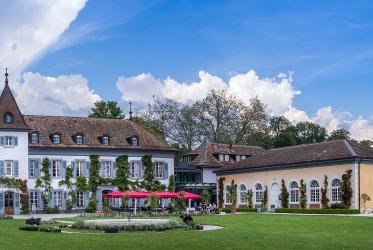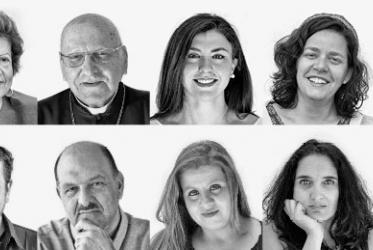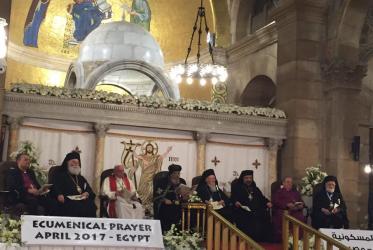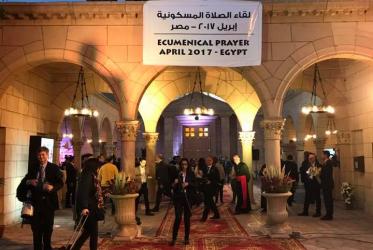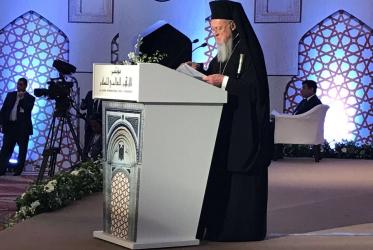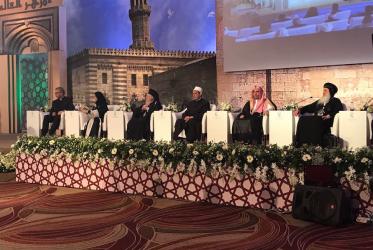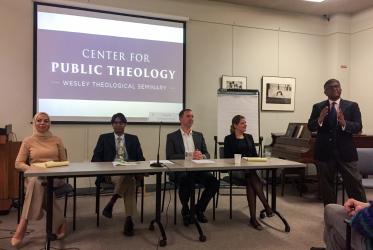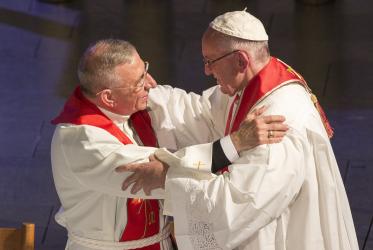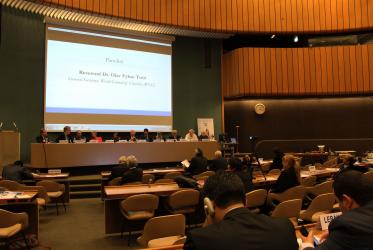Displaying 201 - 220 of 419
WCC seeks #JusticeAndPeace in the Holy Land
20 June 2017
Women in development create space for hope in Egypt
15 June 2017
‘Love is stronger than hate’
02 May 2017
Historic ecumenical prayer in Egypt for peace and unity
30 April 2017
Islam and Christianity: finding the common ground
16 March 2017
WCC gravely concerned over Israel’s travel ban
09 March 2017
“What can we contribute as a worldwide fellowship?”
06 March 2017
